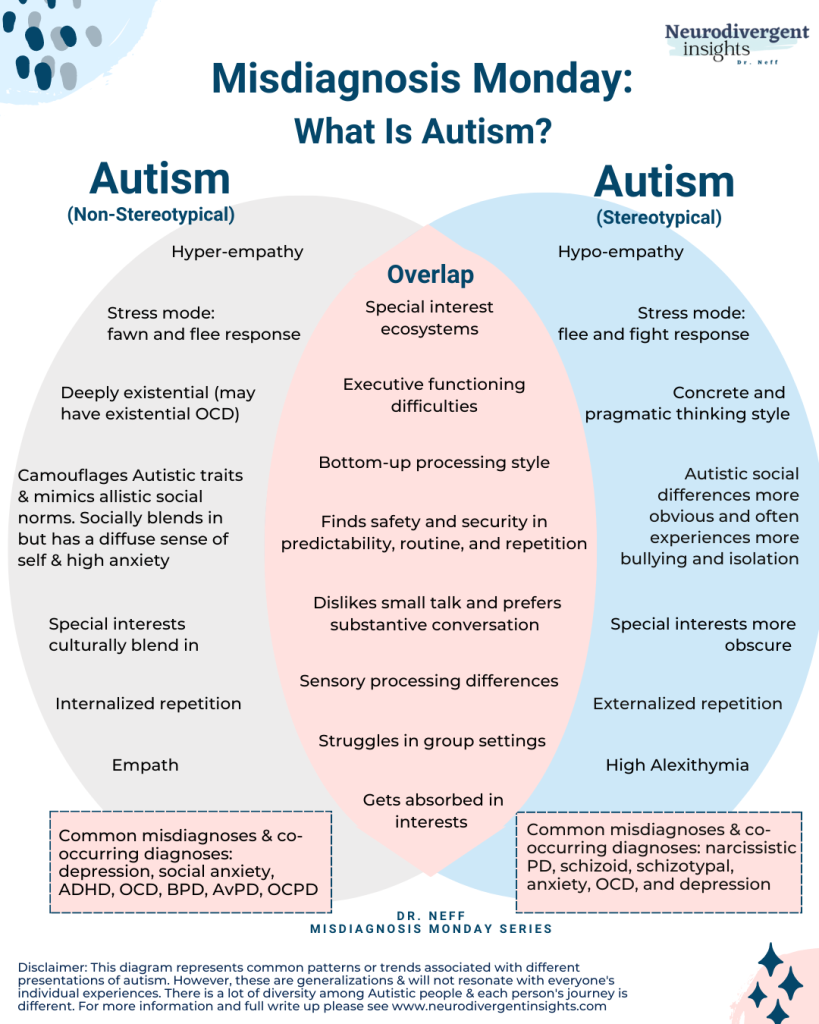Diagnosing autism in people in Australia presents distinctive issues and concerns that reveal the changing understanding of the variety and the varied needs of individuals. Unlike childhood diagnoses that often count on early developing indicators, person autism diagnosis requires recognizing refined behavioral patterns, conversation differences, and cultural problems that could have been camouflaged over the years. The process involves a thorough and culturally sensitive strategy that acknowledges the varied backgrounds and experiences of an individual seeking assessment.
Australia’s diagnostic framework for person autism is affected by globally acknowledged standards including the Diagnostic and Mathematical Guide of Mental Problems (DSM-5) and the International Classification of Conditions (ICD-10). However, professionals completing assessments in Australia are encouraged to embrace a person-centered, strengths-based perspective that thinks an individual’s special neurodiversity and social context.
Option of diagnostic solutions is an essential part of the Australian landscape, and attempts are increasingly being produced to deal with disparities in usage of assessments across regions. Cities usually have more assets and specific professionals, while rural and rural places may possibly experience difficulties in providing reasonable and extensive diagnostic services. Increasing consciousness and building diagnostic volume in underserved areas stay key details for increasing accessibility.
The diagnostic process an average of requires a multidisciplinary team, including scientific psychologists, psychiatrists, presentation pathologists, and occupational therapists. This collaborative approach ensures a holistic analysis that thinks cognitive talents, language proficiency, physical sensitivities, and psychological health factors. Moreover, experts are increasingly knowing the importance of concerning people in the diagnostic process, valuing their self-reported activities and insights.
Ethnic competence represents a vital position in the diagnostic trip for adults seeking assessment in Australia. Indigenous Australians, culturally and linguistically varied areas, and persons from numerous skills need tailored strategies that accept the impact of tradition on expression and notion of autism. Professionals are inspired to engage in constant social competency education to make sure a nuanced comprehension of diverse perspectives.
Late-diagnosed people may possibly experience unique difficulties as they navigate the complex feelings and changes that include knowledge their neurodivergent identity. The diagnostic trip usually extends beyond the examination it self, involving post-diagnostic support, including counseling, psychoeducation, and the development of coping strategies designed to the individual’s talents and challenges.
The acceptance of sex selection within the autism spectrum is still another evolving facet of examination in Australia. Conventional diagnostic requirements, of historically predicated on mainly guy displays, might not record the different expressions of autism in females and people with varied sex identities. Initiatives are underway to improve diagnostic tools and increase consciousness of the initial experiences of autistic people throughout the sexuality spectrum.
Study and advocacy perform integrated jobs in shaping the continuing future of person autism diagnosis in Australia. Continuing reports donate to a further understanding of the prevalence, experiences, and wants of adults on the spectrum. Advocacy businesses, both autism organisations australia and local, work towards destigmatizing autism, increasing attention, and influencing policy changes that prioritize the inclusion and well-being of autistic persons in Australian society.

To conclude, detecting autism in people in Australia requires an energetic and person-centered approach that acknowledges the individual’s distinctive advantages, challenges, and cultural context. The ongoing initiatives to enhance convenience, national competency, and attention contribute to an even more inclusive and helpful atmosphere for people seeking diagnosis and navigating their neurodivergent identities in the Australian context.
